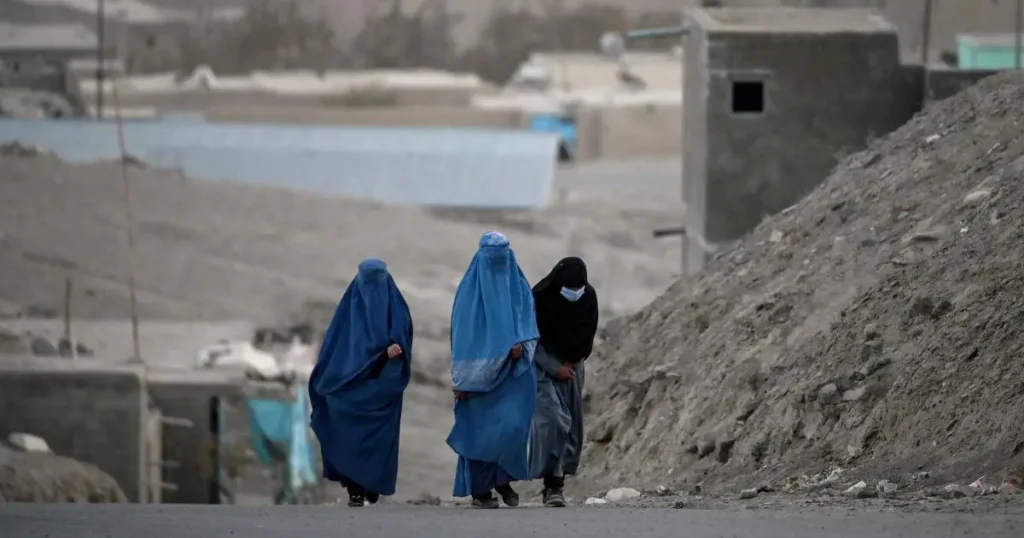The Taliban authorities in Afghanistan have reportedly ordered women to wear a burka – a full Islamic veil – to enter public health facilities in Herat, according to medical charity Médecins Sans Frontières (MSF). The restrictions came into effect on 5 November, affecting female patients, caretakers, and healthcare staff.
Sarah Chateau, MSF’s programme manager in Afghanistan, expressed concern over the new enforcement, saying it “further impedes women’s lives and limits women’s access to health care.” She added that even women requiring urgent medical attention have been denied entry. MSF observed a 28% drop in urgent patient admissions during the first few days after the burka rule was implemented at Herat Regional Hospital.
Reports indicate Taliban members stationed at hospital entrances have been enforcing the dress code, preventing women without burkas from entering. The burka is a one-piece veil that covers the entire body, often leaving only a mesh screen for the eyes.
A Taliban spokesperson for the Propagation of Virtue and Prevention of Vice Ministry denied the claims, saying the ministry only promotes the wearing of a hijab, which generally refers to covering the head with a scarf. They rejected reports that women were banned from hospitals for not wearing a burka, while also acknowledging that interpretations of hijab vary across the country.
Activists from Herat have claimed that burka enforcement extends beyond hospitals, affecting schools and government offices. Social media has seen backlash, including videos of women burning burkas in protest against the Taliban’s policies, though these have not been independently verified.
Since returning to power in August 2021, the Taliban have imposed strict restrictions on women, including barring them from most workplaces and universities, and preventing girls from attending secondary school. The UN has repeatedly called on the Taliban to end what it terms “gender apartheid.”
MSF’s warning highlights the severe impact of the burka rule on healthcare access in Herat, as Afghan women face new barriers to essential medical services under the Taliban’s increasingly strict policies.

